FRAMLINGHAM COLLEGE SENIOR SCHOOL CURRICULUM
GCSE Courses for 2026 Entry
FOR ACADEMIC YEAR 2026/27
Where every pupil creates their own story.

Art and Design
Subject Art and Design
Department Lead
Mrs M Clarke-Wilson, MA BEd Acting Director of Art
Exam Board AQA
Course Number
8202 (Fine Art), 8204 (Textiles), 8206 (Photography)
You may choose to study Art and Design; the three endorsed titles we offer are ‘Fine Art’, ‘Photography’ and ‘Textile Design’. These can combine areas of study, which incorporate responses in a wide range of media.
GCSE Art, in either the ‘Fine Art’, ‘Photography’ or ‘Textile Design’ title, offers you the opportunity to creatively develop skills in painting, drawing, sculpture, photography, ceramics, printmaking, textiles, fashion, design, film-making, animation or any media which allows for an artistic response. All titles allow for freedom of expression and aim to help you creatively and imaginatively develop ideas and create original artwork.
How is the course structured?
During Years 10 and 11 you will complete a ‘Personal Portfolio’ for Component 1 of your GCSE, otherwise known as coursework. Everything you produce from the moment you start your course counts, though we can be selective in the final exhibition of your work. You will use sketchbooks to record your creative journey. You will also create work outside of your sketchbook and in three dimensions, large scale or in a digital format.
You will:
• Learn new skills and techniques, which will enable you to express your ideas in visual ways;
• Look at the work of art practitioners, suitable to your projects, and research their work so you can respond to it in both visual and written forms;
• Be set projects, which will include class work and prep to help you to develop a wide range of responses;
• Visit exhibitions in London, or elsewhere, to inform and inspire your own practice;
• Be able to be creative and imaginative in ways that are personal;
• Be given time to develop your new and pre-existing skills in adventurous ways.
You will be able to be an individual; in Art, making your work personal, is an essential part of the course.
We celebrate your individuality and help you to create what you want.
Examinations
You will have an internal examination in Year 11 which will involve creating preparatory work over a sustained period of time and then creating a final outcome under examination conditions. These will form part of your Component 1 but will also give you practice for the next stage.
In Year 11 the ‘Externally Set Assignment’ is Component 2, otherwise known as the examination. The examination is set by the examination board and given out in January. You have a set number of weeks to create preparatory work before sitting a 10 hour examination (not all in one go!) at the beginning of the Summer Term. There is a broad theme and it requires only that you respond to the theme in any way you want to using the skills, techniques and understanding you have developed during Component 1. As before, you will use sketchbooks to prepare for your examination, but you may also create work outside of this format.
How is it marked?
Component 1: ‘Personal Portfolio’ is worth 60% of your overall marks.
Component 2: “Externally Set Assignment” is worth 40% of your overall marks.
Your work will be moderated in the Summer Term. Each component of the work is internally marked by the department, standardised to national standards, and then moderated by the examination board’s visiting moderator. Once the work has been moderated the marks are finalised by the examination board and turned into grades using the weighting above.
A selected Summer Exhibition will be created after moderation, together with A Level, UAL Diploma and Extended Diploma, which will be open to your parents, friends and relatives and be there for the last day of term.

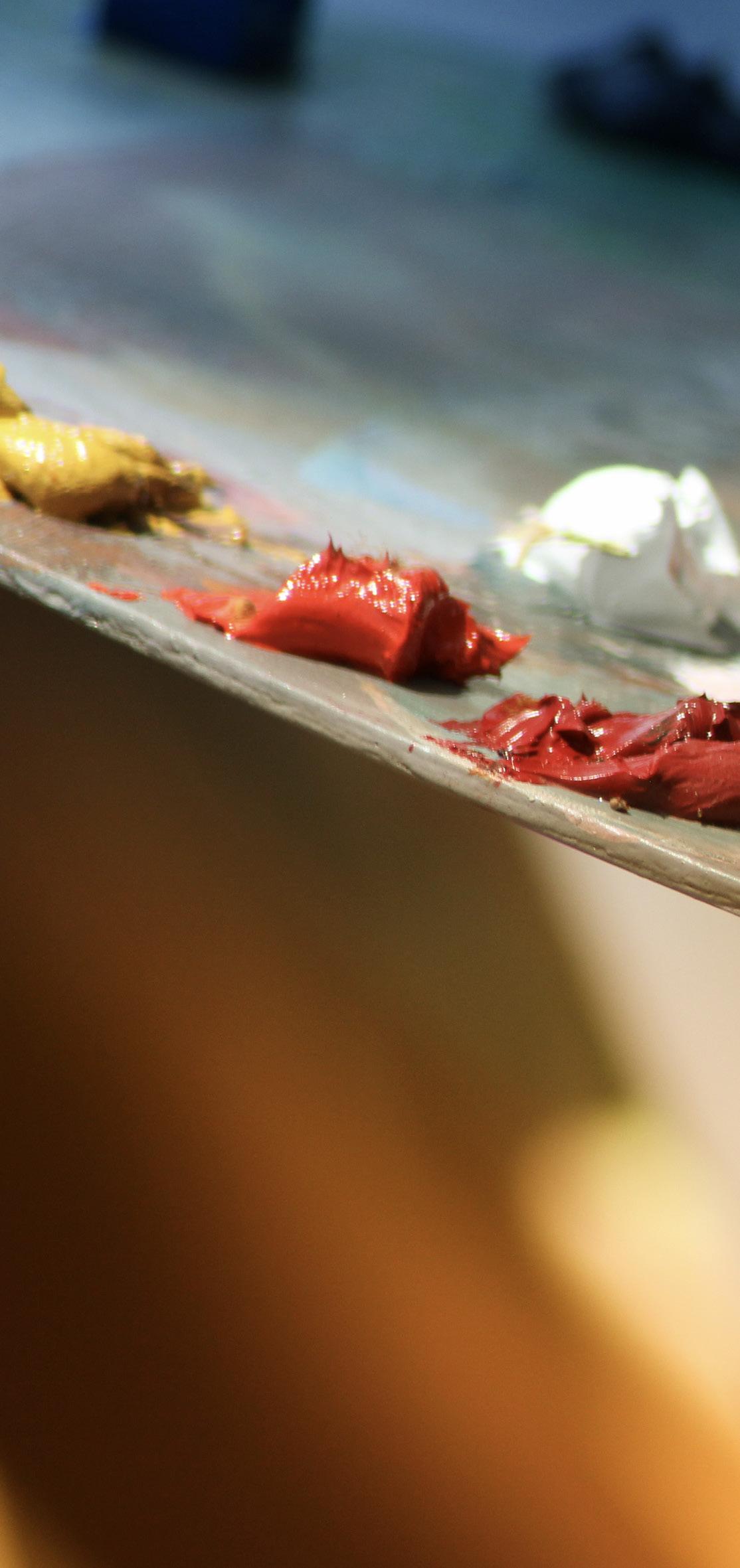
Anything else?
Choose Art if you want to use your creativity, imagination, be adventurous, learn new skills, make pictures, make sculptures, make films, use computers to edit photographs, explore the art world, enjoy and marvel at the beauty of the world around you and mainly be yourself, through art.
“Artisthatwhichthehand,theheadandtheheartgotogether.”
— John Ruskin
Charges
Please note charges are made for certain materials and added to the end of term bill. They will, of course, be kept to a minimum; parents will be consulted prior to purchase if an expensive item is requested. All other materials costs are covered. Art Study visits will also need to be charged for to cover exhibition entry fees and transport; usually Year 10 have one trip and Year 11 have two. This is to provide pupils with preliminary inspiration for each of the components of their course.
It is important to understand that specialist equipment will be required during an Art and Design course, especially to be able to do Prep outside of the classroom and during the holidays.
For Photography a camera, laptop and software are essential. Fine Artists will need drawing and painting materials. Textiles pupils will need a mannequin and sewing machine, for example.


Subject Business
Department Lead Mr K Shelver, B.HMS Head of Economics and Business
Exam Board Edexcel
Course Number 1BS0
The GCSE Business course is exciting and fast moving, investigating the way businesses start and operate to satisfy customers and generate profits for investors.
Pupils will develop decision making skills and learn how to be innovative within a group. The development of different business specific skills will also aid pupils in the future, such as identifying gaps in the market, financial control, and construction of accounts, or learning about recruitment and interview skills.
The course is engaging and inspiring which reflects the demands of a truly modern and evolving business environment. The business world we live in is ever-changing, the impacts of Brexit and Covid-19 have changed the way we think about Business forever. This truly dynamic subject feeds a thirst for knowledge, sparks pupils’ imaginations and generates commercial thinking for the future.
How will I be successful?
You will have an inquiring mind and be interested in current affairs. You will be open to developing a range of skills, such as communication, presentation, and problem-solving. You are then able to apply the skills and the knowledge you learn to different business contexts. You will be willing to take risks and make mistakes. This way you will build an entrepreneurial spirit, through which you can apply the business knowledge you learn to the developments in the external environment.
You will study the following topics:
Enterprise and entrepreneurship
Spotting a business opportunity
Putting a business idea into practice
Making the business effective
Understanding external influences on business
Assessment
Growing the business
Making marketing decisions
Making operational decisions
Making financial decisions
Making human resource decisions
You will sit two examination papers at the end of the course. Each exam paper is structured in the following way:
The papers will consist of calculations (calculators are allowed in the exam), multiple-choice, short-answer and extended-writing questions.


Subject Computer Science
Department
Lead
Mr M Lorimer, BSc (Hons) Director of Computer Science
Exam Board OCR
Course Number
We live in the Digital Age; computer systems have all but infiltrated every aspect of our lives and this course allows pupils to understand and develop these programs for themselves.
Computer Scientists theorise, design, develop, and apply the software and hardware for the programs we use day in and day out. The GCSE in Computer Science will allow pupils to discover how computer systems work, teaching them invaluable 21st century skills such as networking and programming. This course will enable pupils to understand the Computer Systems in the Digital Age and give them the building blocks to innovate, create and succeed in industry.
How will I be successful?
Those who have an interest in and a passion for computers and technology will thrive on this course. The ideal Computer Science pupil will be an independent and logical thinker who enjoys solving problems in a variety of situations. A decent level of Mathematics is required for successful completion of this course.
Pupils will complete the OCR GCSE Computer Science Course. They will take a practical approach to their learning, allowing them to experience these topics with context to the world they live in. The course covers a wide range of topics including:
Ethical, legal, cultural and environmental concerns Wired and wireless networks
techniques
topologies, protocols and layers Producing robust programs System security
A large focus will be placed on programming across a range of coding and scripting languages including Python, HTML, JavaScript, and Visual Basic among others. Pupils will get hands on experience with computer systems; from taking them apart, creating networks and visiting The Centre for Computing History in Cambridge to gain further understanding of the development of Computer Science.
Assessment:
The GCSE in Computer Science consists of two examination components; all assessments take place in Year 11.
Computer Systems
Computational Thinking, Algorithms and Programming
A GCSE in Computer Science leads towards further study of the subject at A Level or BTEC and prepares pupils for an industry apprenticeship. Pupils completing the course will gain sound understanding of a wide range of Computer related knowledge to apply and take forward.

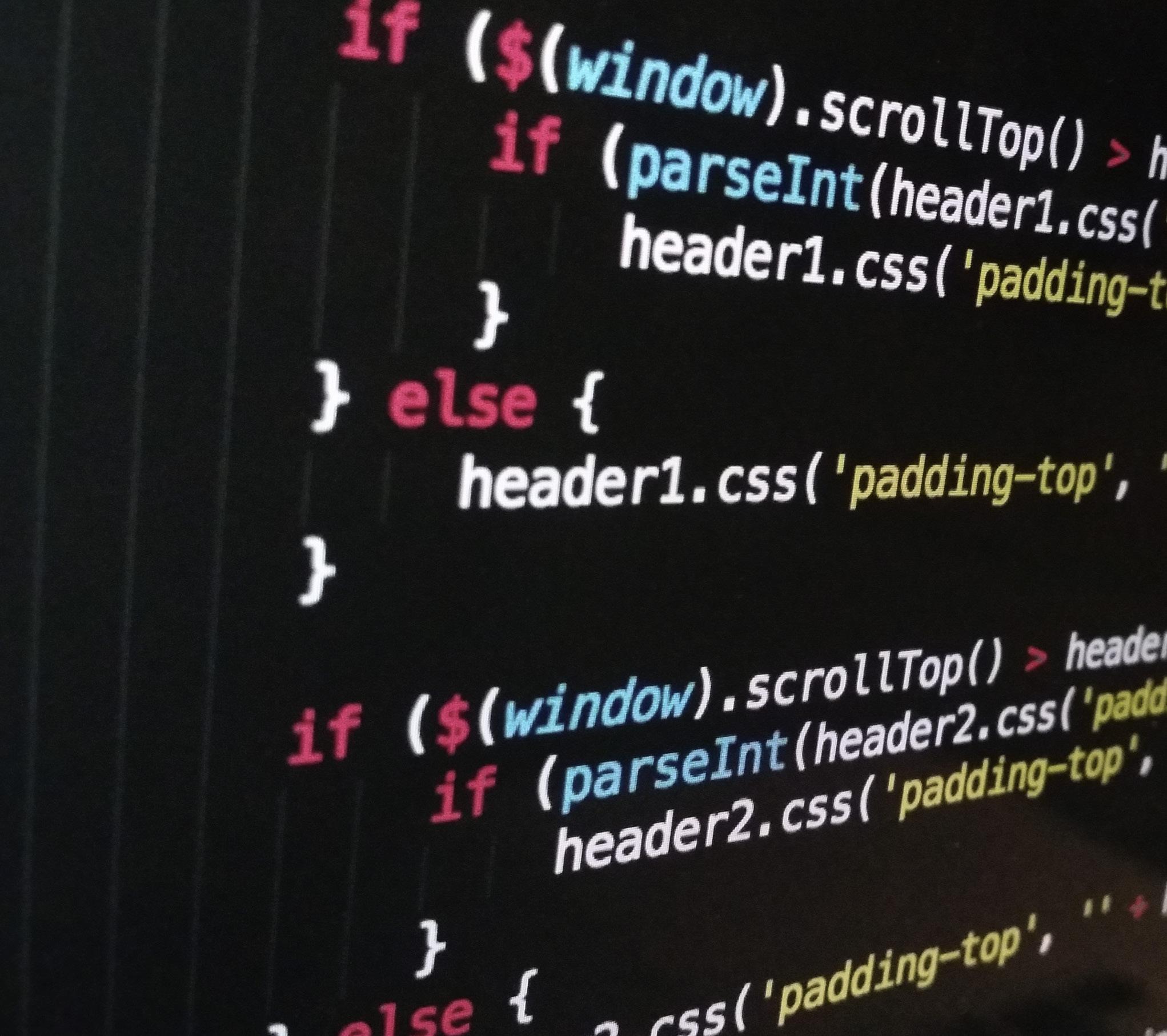
Subject
Design and Technology
Department Lead Miss M Flack, BA Director of Design and Technology from January 2026
Exam Board
Course Number
Eduqas
C655QS
Design and
This GCSE provides entry to an unprecedented range of specialisms, skills – both traditional and digital – and careers.
Eduqas Art & Design - Three-Dimensional Design
This title is designed to promote learning across a variety of experiences and through various processes, tools, techniques, materials and resources to generate different kinds of evidence of working and outcomes. Three-Dimensional Design covers a particularly wide selection of activities ranging in scale from jewellery and homewares to architectural and environmental design. Other aspects include furniture and product design, interior and graphic design or use of CAD-CAM.
The course enables learners to develop practical skills while also encouraging design thinking. An inspiring, rigorous and practical subject firmly rooted in the skills required to design and make high quality innovative products that are fit for purpose and demonstrate knowledge and understanding. Learners identify market needs and opportunities for new products, initiate and develop design solutions, and make and test prototypes using a wide range of materials, processes and skills. An awareness of sustainability and wider issues in design is also fostered and developed through sustained and inquisitive study of designed objects and manufacturing processes.
How will the course help me in the future?
The GCSE equips pupils with skills and knowledge that prepare them for further education and beyond, leading perfectly into our A Level course in which pupils follow the same course structure and assessment processes. Following their study of GCSE and A-Level Design & Technology many recent leavers have gone on to undergraduate degrees in subjects ranging from Product Design and Architecture, to Gaming Design and Mechanical Engineering.
What will I learn?
Through their projects pupils will learn skills ranging from critical thinking and problem solving, to creativity and communication, as well as a wide range of working and practical skills such as research, collaboration, self-direction, designing in 2D and 3D, and handicrafts.
Assessment Structure
The course is split into two components. Each Component is internally assessed and externally moderated by Eduqas. There is no ‘theory’ exam:
• Component 1: Portfolio (60%)
This component comprises a major practical portfolio and outcome/s to be based on internally set themes and subject matter developed from personal and/or given starting points.
• Component 2: Externally Set Assignment (40%)
This component is based on preparatory study that leads to a ten hour period of sustained focus in which you will produce a response to a chosen theme, visual stimuli or written brief.
Pleasenote:Therewillbeachargeraisedformaterialsusedforpupilcoursework.


Subject Drama
Department Lead
Exam Board
Course Number
Mr J Russell, BA MA PGCE Head of Drama
Key to this qualification, and close to the hearts of our keen Drama pupils, is the opportunity to develop skills as performers, designers and directors as well as developing an appreciation for the way these roles work together to create vibrant and interesting theatre experiences for an audience.
Over the course of two years, GCSE Drama pupils will have the exciting opportunity to practically explore one full length play from the perspective of a designer, director and performer; create a devised piece and experience stunning live and recorded theatre. They will develop the ability to effectively analyse and evaluate their own work and the work of others. They will develop an understanding of the way performance texts can be interpreted and performed.
The Drama GCSE course consists of the following three components:
Component 1: Understanding Drama (Open Book Written Exam)
40% of the qualification - 80 marks
Questions:
• Section A: multiple choice based on theatre roles and stage configurations.
• Section B: Four questions on a given extract from the set play chosen.
• Section C: One question (from a choice) on the work of theatre makers in a single live theatre production.
Component 2: Devising (Practical and Written Portfolio)
40% of the qualification – 80 marks
Task:
• A group performance of devised drama (around 12-15 minutes). Pupils may contribute as performer or designer. (20 marks)
• A devising log analysing and evaluating the process of responding to stimulus, practical development and refinement and the final performance. (60 marks)
Component 3: Texts in Practice (Practical)
20% of the qualification - 40 marks
Task:
• Performance of two extract from one play, which contrasts to the set text choice. Pupils may contribute as performer or designer. (20 marks per extract)
Pleasenote:attendingtheatricalperformancesiskeytothiscourseandthiswillincuracost.
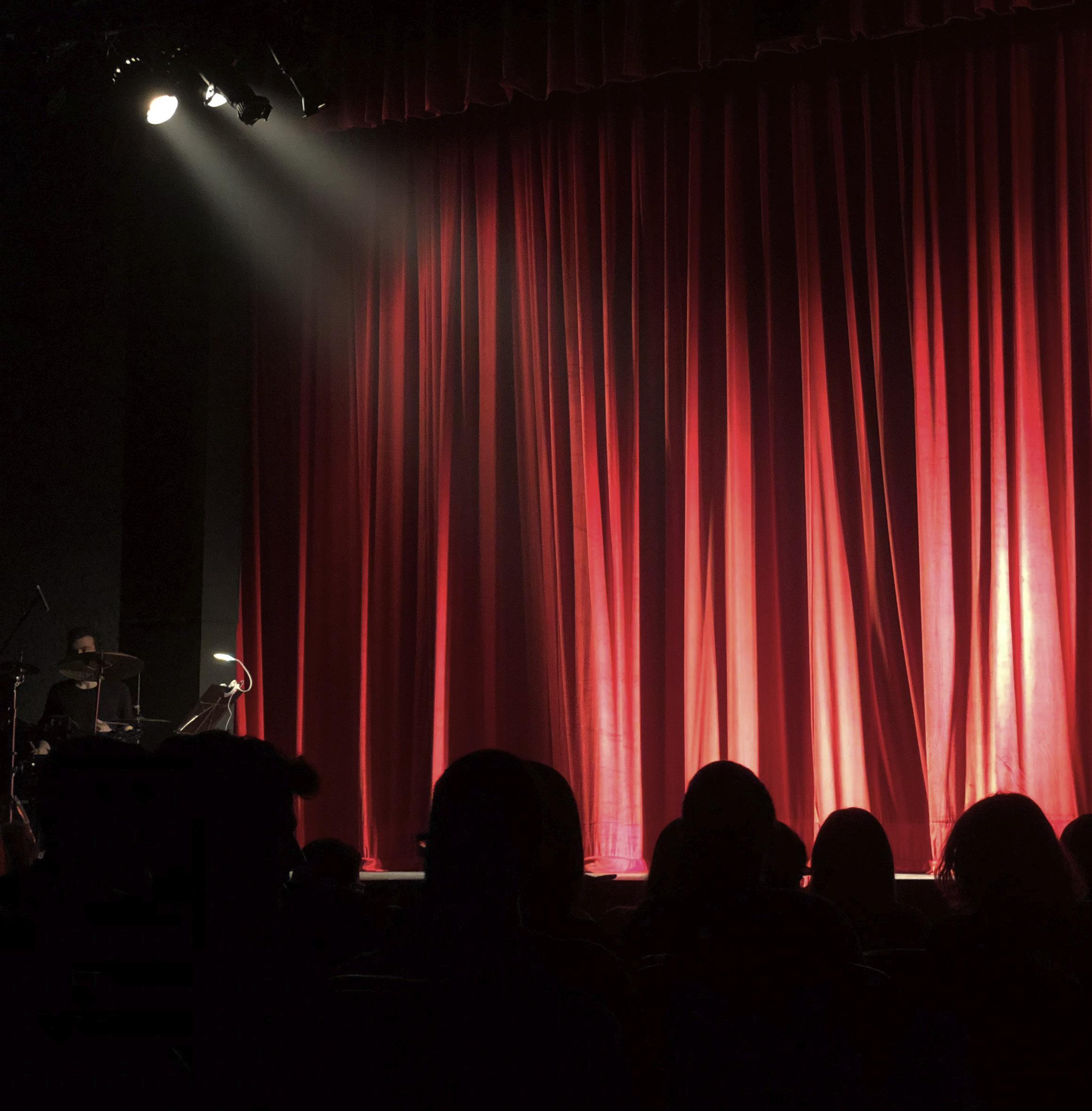

Subject English
Department Lead
Mr L Goldsmith, MA MBA PGCE Head of English
Exam Board AQA
Course Number
8700 (English Language), 8702 (English Literature)
All pupils will use Year 10 and Year 11 to work towards two GCSE level qualifications: the AQA English Language GCSE and AQA English Literature GCSE.
The GCSE in English Language focuses on more functional elements of literacy in the main and the English Literature GCSE is based around analysing a series of varied texts across time and genre with a focus on British literary heritage in line with all reformed GCSEs. The GCSE in English Language does not involve any controlled assessment or coursework although there is a compulsory Speaking and Listening task. There are then two terminal examinations. The GCSE in English Literature consists of two terminal examinations and there is no longer any formal coursework element. We do, however, run our own Framlingham College Essay Prize which will help prepare our pupils for A Level and degree level study.
English Language
At the heart of the English Language course are the key literacy skills all pupils will need for their future studies and careers. Pupils will learn to read more carefully, write more accurately and speak with confidence, clarity and conviction. They will encounter writing in a range of different styles and be
encouraged to adapt their own expression, both written and oral, to suit various purposes, audiences and situations. Pupils developing skills in all these areas will be monitored by means of a mixture of interim assessments across the two years and will sit the two terminal examinations at the end of Year 11.
Areas of Study:
• Creative Writing;
• Non-Fiction writing such as letters, speeches, reports, newspaper articles;
• Comprehension and analysis of newspaper articles and political speeches;
• Analysis of literary fiction and non-fiction texts such as travel writing and autobiography;
• Speech-making, group discussion work and role-play.
Assessment Paper 1 Paper 2
1 Hour 45 Minutes
Explorations in Creative Reading and Writing
English Literature
1 Hour 45 Minutes Writers’ Viewpoints and Perspectives
The English Literature course exists to expose pupils to a range of literary texts from various periods and in all three major genres: prose fiction, poetry and drama. There is also an expectation that pupils read widely and independently. Candidates will learn to read more critically, analyse aspects of form, structure and language in some detail, and construct essay-length appreciations of individual works. Unseen poems and the study of a themed set of poetry will be used to extend pupils’ appreciation of how a range of poems are crafted.
Pupils will study the English Literature course alongside the English Language course although they are separate GCSE
Assessment
S & L
Non-examined: Spoken Language
qualifications. Again, assessment will be by means of interim assignments and the two terminal examinations at the end of Year 11.
Possible areas of Study:
• Shakespeare and other major early-modern plays (currently ‘Romeo and Juliet’);
• Classic British Prose Fiction (currently ‘Jekyll and Hyde’ or ‘A Christmas Carol’);
• Contemporary Fiction and Modern Drama (currently ‘Animal Farm’);
• AQA Poetry Anthology (currently ‘Power and Conflict’).

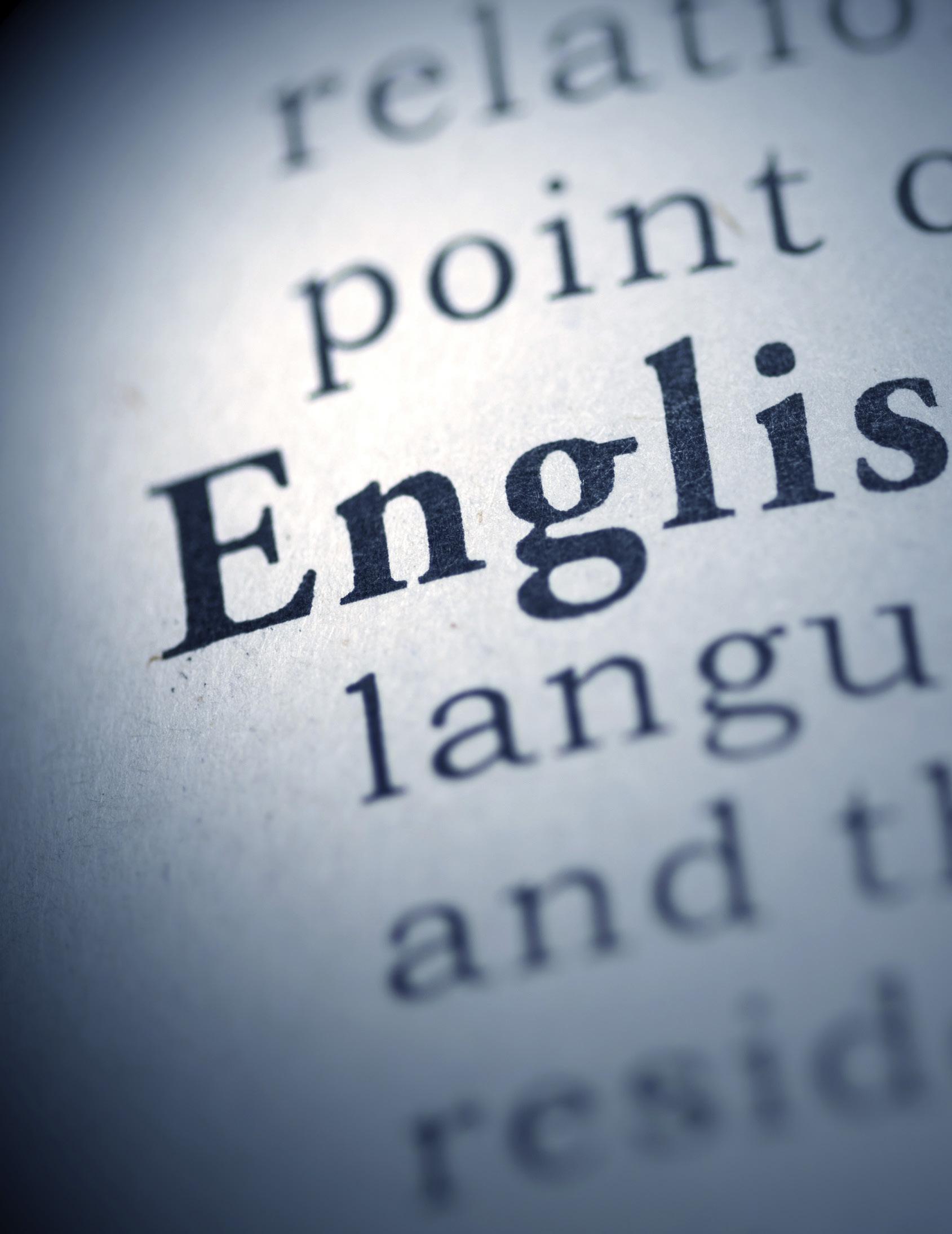
Subject English as an Additional Language (EAL)
Department Lead
Mrs E Dickson, BA PGCE Head of EAL
Exam Board CIE
Course Number 0991
For pupils who have English as their second language, this course is an alternative to the GCSE English Language course.
It leads to a single IGCSE qualification, with a Grade 5 generally being the minimum requirement for entrance into British universities. The language skills developed through studying this course also help pupils’ progress and success in the other subjects they choose in Years 10 and 11 .
The course includes:
• Studying a wide range of short fiction and non-fiction texts, with a focus on comprehension and vocabulary;
• Studying intermediate and advanced grammar and language structure;
• Developing a variety of writing skills and styles;
• Intensive vocabulary development;
• Developing high level listening and oral skills.
Pupils learn how to:
• Develop essential reading and listening comprehension skills;
• Analyse and summarise articles, stories and factual texts;
• Select and write notes from written and listening texts;
• Write articles, letters, essays, stories, reviews and reports;
• Express ideas and opinions in writing and speaking with an emphasis on accurate and fluent communication.
Assessment
Assessment is 100% exam based with the following structure:


Subject Geography
Department Lead
Mr E Newman, BSc (Hons) PGCE Head of Geography
Exam Board Eduqas
Course Number
C112QS Geography B
Geography as a discipline and as a body of knowledge has never been more relevant.
Contextualising problems requires geographical knowledge. Solving problems requires geographical understanding. Having the ability to look at the world through a geographical lens is essential when addressing the issues of our time, from Overpopulation to Climate Change and Inequality to Extreme Weather. Geographers have the unique ability to look at the world from both a human and physical perspective. During the GCSE, pupils undertake three days of interesting fieldwork in contrasting environments, including a day at the coast, a river, and an urban area.
You will gain a conceptual understanding of:
• Place, space, scale, interdependence, human and physical processes, cultural understanding, environmental interaction and sustainability.
Skills you will develop:
• Numerical, graphic, statistical, cartographic and use of Geographical Information Systems (GIS) .
You will need to:
• Think creatively
• Think scientifically
• Think independently
Assessment
Component 1: Investigative Geographical Issues
1 Hour 45 Minute Paper
Examines understanding of Changing Places, Changing Environments, Environmental Challenges
Secondary Geography Quality Mark
Component 2: Problem Solving Geography
1 Hour 30 Minute Paper
Asks pupils to apply their knowledge from Component 1 in a DecisionMaking Exercise
Component 3: Applied Fieldwork Enquiry
1 Hour 30 Minute Paper
Examines two experiences of data collection
The Geography department is a recipient of the prestigious Secondary Geography Quality Mark from the Geographical Association. This award celebrates excellence in geographical education, highlighting a department that adopts innovative techniques, pushes curriculum development, and produces skilled, independent and knowledgeable geographers. The department has also been awarded ‘Centre of Excellence’ status for our fieldwork provision, the highest award the Geographical Association gives to schools, which highlights our commitment to delivering valuable learning opportunities outside of the classroom.


Higher Project Qualification
Subject Higher Project Qualification (HPQ)
Department Lead Miss A Janes, MA BA (Hons) HPQ Coordinator
Exam Board AQA
Course Number 7992
The College offers an exciting opportunity to take a GCSE level, project based qualification. The HPQ is similar to the EPQ offered at Sixth Form and can be a good preparation for it.
Why is it a good idea?
• It gives pupils the chance to develop skills of independent learning at Year 10 and provides the opportunity to try something outside or beyond the scope of the main curriculum.
• It encourages self-determination and ownership of a project.
• Pupils decide on the title and the form it will take; we provide the tools, teach the skills and help the pupil to create a piece of work which is truly theirs.
• The scope is very broad, it could be: an essay, a piece of creative writing, poetry, a science project, an artefact, a work of art, a plan for a performance. Pupils decide, pupils make it happen.
Who is it for?
• It is for pupils who are self-motivated and inquisitive.
• It is particularly useful for anyone intending to go to university because it gives them a head start in the kind of academic research, critical thinking, problem solving and report writing expected at university.
• It is also really good stepping stone to the EPQ in Year 12, which reinforces and develops these skills still further.
What does it entail?
• A programme of skills lessons to support work on the project. These give the basic building blocks to enable the pupil to create a competent piece of work and demonstrate skills in project management.
• A log of the pupil’s progress, and particularly any developments or changes they may make in their plan. This is almost as important as the product itself as it demonstrates the ability to adapt and modify and respond to changes and difficulties pupils may encounter.
• The final product, with an evaluation of the project process.
• A presentation about the product and the process of creating it delivered to a non-specialist audience.
The key word is independence, each pupil will have a supervisor who is there to support and advise, but not to do the work for them. They are expected to do the ‘leg work’, using the skills presented in the skills sessions.
The whole process will be completed by the beginning of October, thus giving pupils the summer holidays to complete the final product in time for a presentation at the beginning of Year 11.

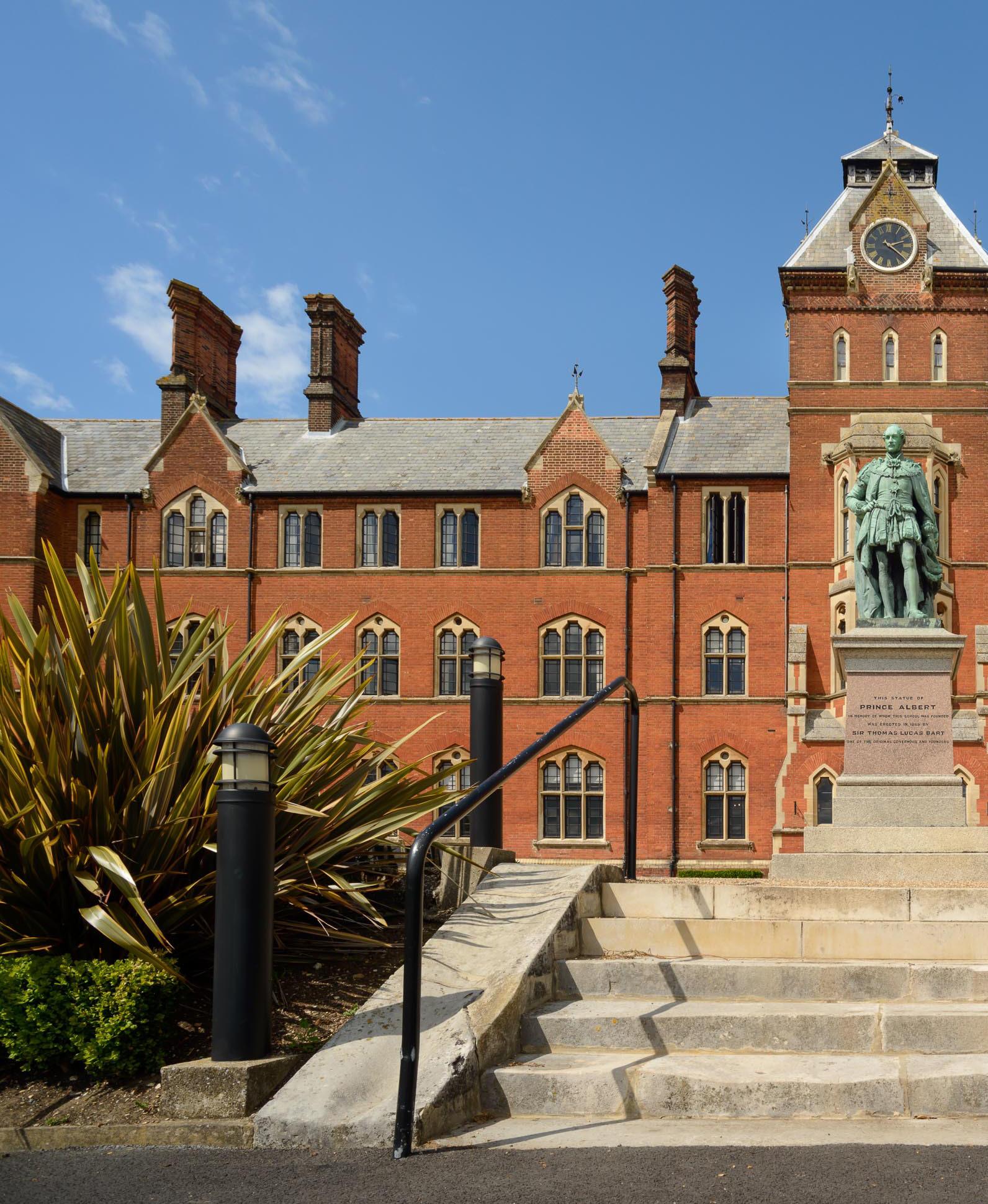
Subject History
Department Lead
Mr J Moore, BA (Hons) PGCE Head of History
Exam Board AQA
Course Number 8145SC
Back in the Dark Ages when the National Curriculum was originally devised, the plan for a brighter future was to make History compulsory up to age 16, and although in fact History remained voluntary, it is widely regarded as a crucial component of a broad education. Sometimes pupils see themselves as choosing between History and Geography, but many able pupils should be encouraged to do both – it is good to know about ‘chaps’ as well as ‘maps’!
The GCSE course is made up of four components designed to give pupils a grasp of a wide range of material and to develop their ability to process information and to write effectively and relevantly. This qualification is linear and pupils will sit two exam papers of 1 hour 45 minutes at the end of the course:
Paper 1: Understanding the Modern World
Section A: Russia, 1894–1945: Tsarism and Communism
This ‘period study’ focuses on the development of Russia during a turbulent half century of change. It was a period of autocracy and communism –the fall of Tsarism and the rise and consolidation of Communism. Pupils will study the political, economic, social and cultural aspects of these two developments and the role ideas played in influencing change. They will also look at the role of key individuals and groups in shaping change and the impact the developments had on them.
Section B: ‘Conflict and tension between East and West, 1945–1972’
This ‘wider world depth study’ enables pupils to understand the complex and diverse interests of different states and individuals and the ideologies they represented. It focuses on the causes and course of the Cold War and seeks to show how and why conflict occurred and why it proved difficult to resolve the tensions which arose. This component also covers the role of key individuals such as Mao Zedong, Fidel Castro, Nikita Khrushchev and John F. Kennedy, in shaping change and influencing international relations.
Paper 2: Shaping the Nation
Section A – ‘Britain: Health and the People: c.1000 to the present day’
This ‘thematic study’ will enable pupils to gain an understanding of how medicine and public health developed in Britain over a long period of time. It considers the causes, scale, nature and consequences of short and long term developments, their impact on British society and the context in which they occurred. Although the focus of this study is on medicine and public health in Britain, it will also consider relevant developments in the wider world as they affected Britain.
Section B – ‘Elizabethan England: c1568-1603’
This option allows pupils to study in depth a specified period, the last 35 years of Elizabeth I’s reign. The study will focus on major events of Elizabeth I’s reign considered from economic, religious, political, social and cultural standpoints, and arising contemporary and historical controversies.
Part of this unit will involve pupils being examined on a specific site in depth. This site will be as specified and will be changed annually. The site will relate to the content of the rest of this depth study. It is intended that study of different historic environments will enrich pupils’ understanding of Elizabethan England.


Subject Latin
Department Lead Ms A De Bassano, MA Teacher i/c Latin
Exam Board
Course Number
OCR
J282B
Latin is a subject that is very much back on the curriculum nowadays. If a generation back there was some speculation that it might disappear amongst a plethora of trendier options, it is now re-establishing itself in a variety of forms in a variety of schools, and Framlingham is keen to ensure that pupils with the right aptitude have the opportunity on an extra-curricular course to make the most of their ability in this field.
A knowledge of our classical heritage is vital for understanding the nature of the modem world: many of the languages of modem Europe largely derive from Latin, and so for scientists, linguists and those following courses in any of the humanities, some Latin is a useful tool, an adornment to their studies, and an indication to good universities that here is a student with something extra.
Latin GCSE (OCR) has evolved as have other examination courses, but mutatis mutandis, the basic elements remain much the same. The exam consists of one translation and comprehension paper, and two papers involving the study of set extracts of Verse and Prose.
The Year 10 course concentrates on establishing the basics of the grammar and vocabulary of the Latin language. Some pupils may come with previous knowledge, and most will have attended an introductory course in Year 9. By the end of Year 10 they should be competent in elementary accidence and syntax, and they should be masters of the five hundred or so words required for GCSE. Although this may sound dry as well as traditional, there is plenty to interest pupils who enjoy exploring links between Latin and other languages and touching on a host of related cultural topics - a grasp of the language can enable pupils to begin to appreciate the greatest writers of the classical world.
Of comparable value is the Year 11 course with its more pronounced emphasis on Latin literature and the culture which produced such great works. This year pupils are working on prose extracts from Pliny, Caesar and Livy, and verse extracts from Virgil, Catullus and Ovid. There is nothing dull about the content of these extracts: the theme of the verse is ‘Passions and Poisons’, and Medea and Amata are examples of powerful women corrupted by these, while Catullus laments his loss of Lesbia’s love; the prose theme is “Travel and Communications” and looks at Pliny’s government of a distant province, Caesar’s first landing of troops in Britain, and Hannibal taking his elephants over the Alps. Pupils thus rub shoulders with a great Roman historian (Livy), Rome’s greatest general (Julius Caesar), and Rome’s greatest poet (Virgil).
If this interests you, then you too can be part of the Classical experience at Framlingham.
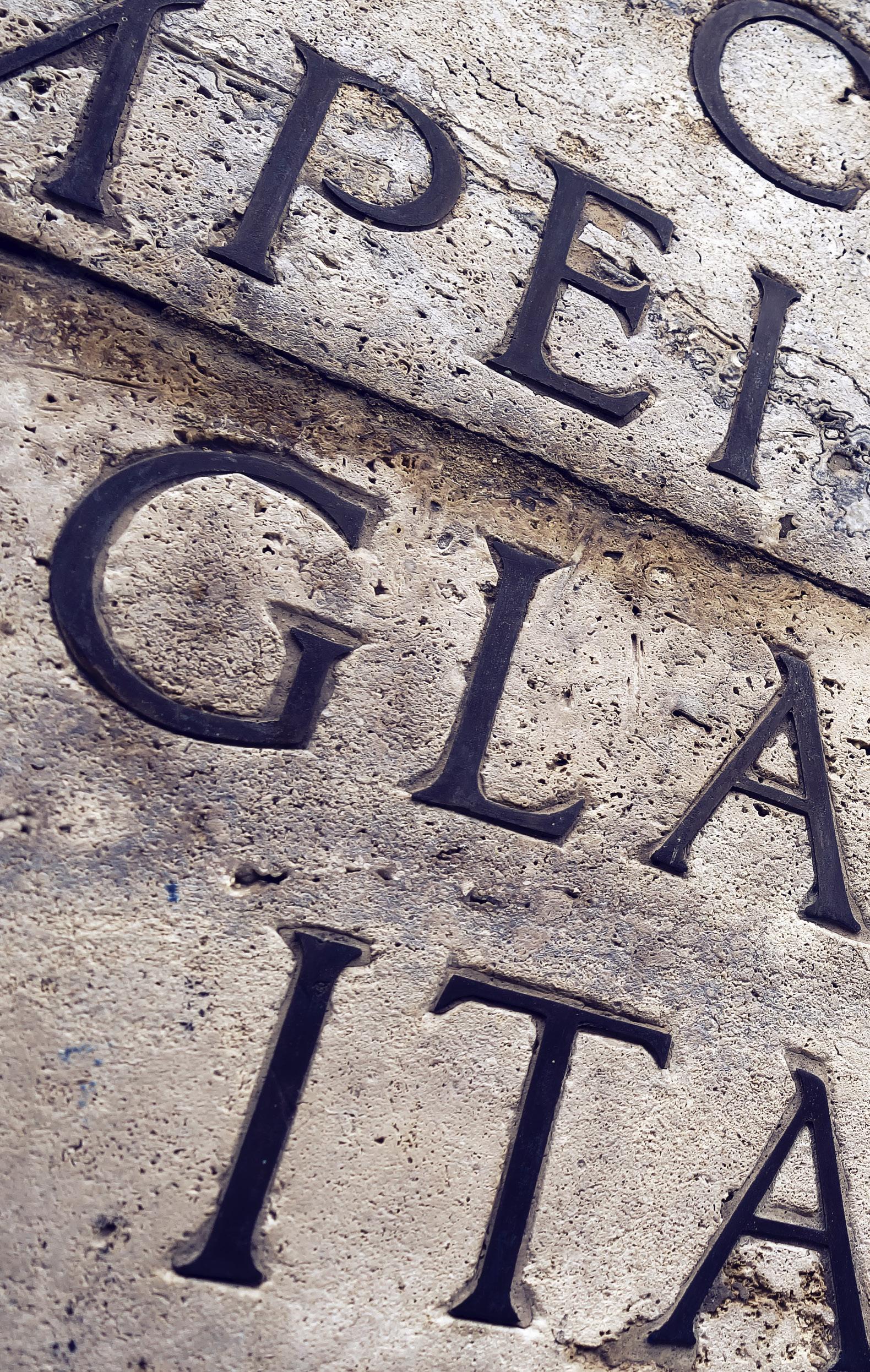

Subject Mathematics
Department Lead Mrs H Stannard, MSc BSc Head of Mathematics
Exam Board Edexcel
Course Number 4MA1
Mathematics is a fascinating subject that explores relationships between numbers, shape, quantity, structure and change. Whether it is a good problem, an undisputable answer, or the logical step-by-step solutions, Mathematics can be beautiful to any learner.
A good qualification in Mathematics provides evidence of higher cognitive reasoning, attention to detail, communication, data interpretation and analytical skills. This core subject is highly valued by most employers and is often required for entry to Further or Higher Education.
You will study:
• Number and the number system;
• Algebra: equations, formulae and identities;
• Sequences, functions and graphs;
• Geometry and trigonometry;
• Vectors and transformation geometry;
• Statistics and probability.
You will learn the following skills:
• Use mathematical techniques to arrive at solutions;
• Use logic and reason to solve problems;
• Break down tasks into small steps in order to solve them;
• Apply mathematics to modelling real life problems;
• Present arguments and proofs mathematically;
• Use a calculator effectively when appropriate.
In Years 9, 10 and 11 pupils are set according to their current attainment in Mathematics. All pupils follow the linear Pearson Edexcel iGCSE Mathematics A Specification which is assessed through two calculator examinations. Most Framlingham College pupils take the Higher iGCSE in Year 11, with a some sitting the Foundation IGCSE examination where appropriate. The Higher Tier course offers a grade range from 9 to 4, whereas the Foundation Tier course offers Grades 5 to 1.
The aim of the Department
The Framlingham College Mathematics Department aims for every pupil to enjoy the subject, achieve their full potential, and gain confidence. We endeavour to challenge our pupils and encourage them to take pride in the progress of their mathematical understanding. By utilising the fantastic technologies available in supporting pupil learning, we aim to provide stimulating and varied teaching to build a deep level of understanding.
The top set pupils will take the United Kingdom Mathematical Challenge papers in Years 9, 10 and 11, and can try out for our team which attends the interschool Challenges. We also run several trips which aim to inspire our pupils, presenting mathematics in the context of exciting, real-world applications.
Our high attaining iGCSE pupils progress to Sixth Form Mathematics and study the A Level Mathematics course, with some of the very best opting to study A Level Further Mathematics. Aspiring candidates should seek advice in Years 10 and 11 from their Mathematics teachers as to their suitability for the course.
Calculator
All Mathematics pupils from Year 9 to Year 11 must be in possession of a basic scientific, relatively inexpensive, calculator. It is essential that this has the Trigonometry functions of sin, cos and tan, and crucial that it does not have the capacity to perform symbolic algebra operations. (For example, it should be able to perform the four rules with number, but not have the capacity to add 2x + 3x and give the answer of 5x.)
Our school shop sells the recommended Casio FX-83/85 GT CW calculator, and the Mathematics teachers demonstrate its use in class through appropriate software. When replacing a calculator, it would be advantageous if pupils opt for this model. For pupils who are planning to study A Level Maths, we would encourage they purchase the more sophisticated Casio FX-991 CW as this can be used for GCSE Mathematics and for A Level Mathematics.

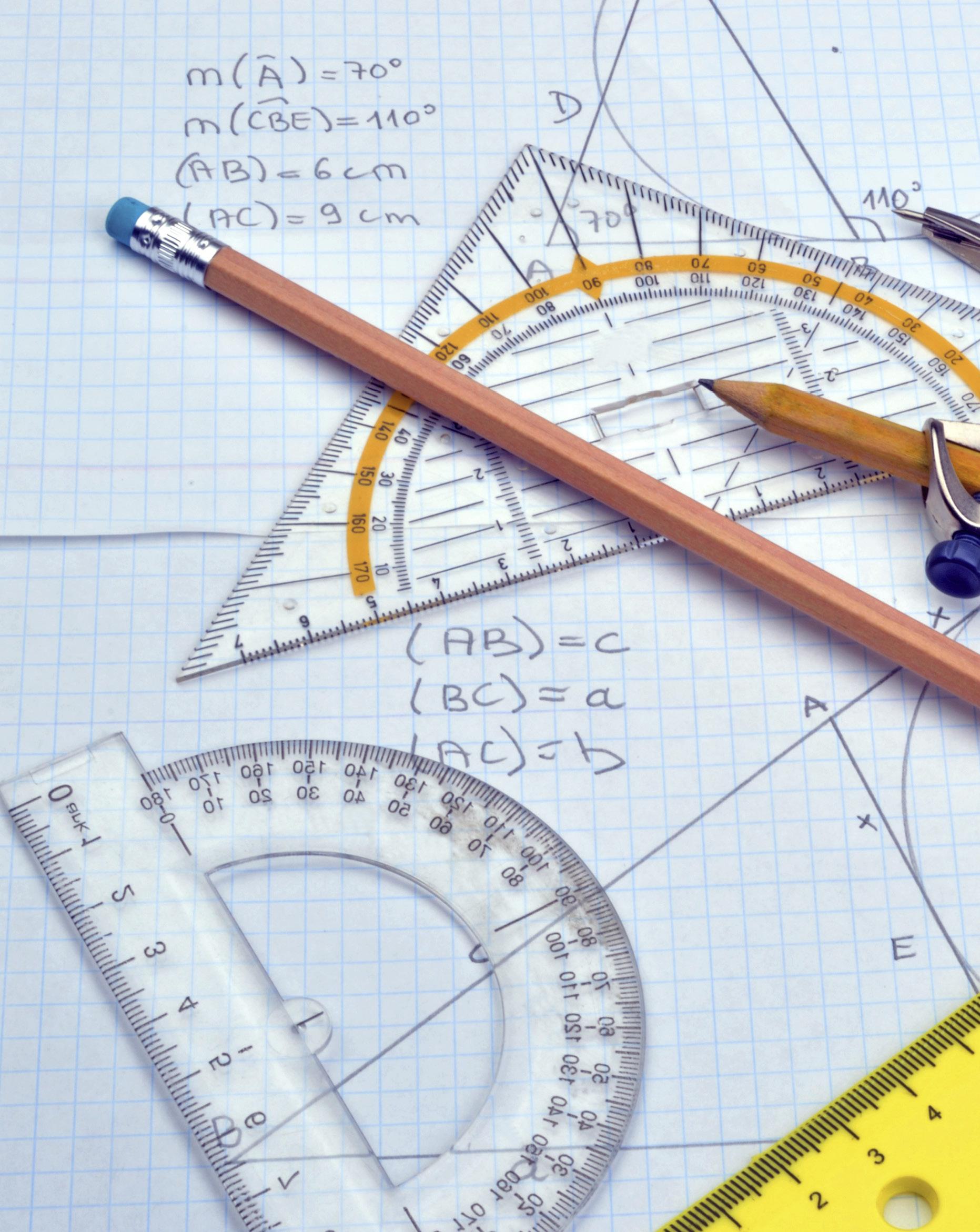
Subject Modern Languages
Department Lead
Mr J Sedeño, BA (Hons) PGCE Director of Languages
Exam Board Edexcel
Course Number 1FR0 (French), 1SP0 (Spanish)
You will enjoy this course if you want to study a subject that offers a range of skills and a variety of activities. Learning a language teaches you not only to communicate with people in other countries, but also about their way of life. Universities and employers view the ability to speak and understand a foreign language as an extremely valuable asset.
You may opt for one or two Modern Languages.
The aims of a Modern Languages GCSE
• To develop the ability to communicate confidently in the language both in speech and writing;
• To express ideas spontaneously;
• To listen and understand standard speech at near normal speed;
• To understand how the language works;
• To develop an awareness and understanding of the culture and identity of the countries where the language is spoken;
• To develop language-learning skills for immediate and future use in higher education and employment.
Themes and Topics
You will cover a range of relevant contemporary and cultural themes:
• Identity and culture;
• Local area, holiday, travel;
• School;
• Future aspirations, study and work;
• International and global dimension.
How will you study?
You will have classes with the support of a native-speaker language assistant. You will work in the Language Lab and use internet-based learning programmes in lessons and for Prep. You will need to be prepared to learn vocabulary and to read and listen to as much of the language you are studying as possible beyond your classwork and Prep. You will have the opportunity to participate in an exchange or study visit.
Follow on from Key Stage 3
You need previous knowledge of a language to begin GCSE. You will have already developed important language skills and knowledge at Key Stage 3. The GCSE course will build on this and introduce you to a wider range of languages, structures and vocabulary. You will learn to understand, translate, speak and write the language at intermediate level.
Modern Languages Exams
In the Summer Term of Year 11, you will take four papers (listening, speaking, reading and writing) each worth 25% of the GCSE.
With a GCSE Modern Language, you will begin to acquire transferable skills that will enable you to respond to the demands of A Level, undergraduate study and the world of work. The study of languages improves your critical thinking ability, communication skills and your adaptability. Knowledge of a foreign language is highly valued by employers and an essential skill in a multi-cultural environment.
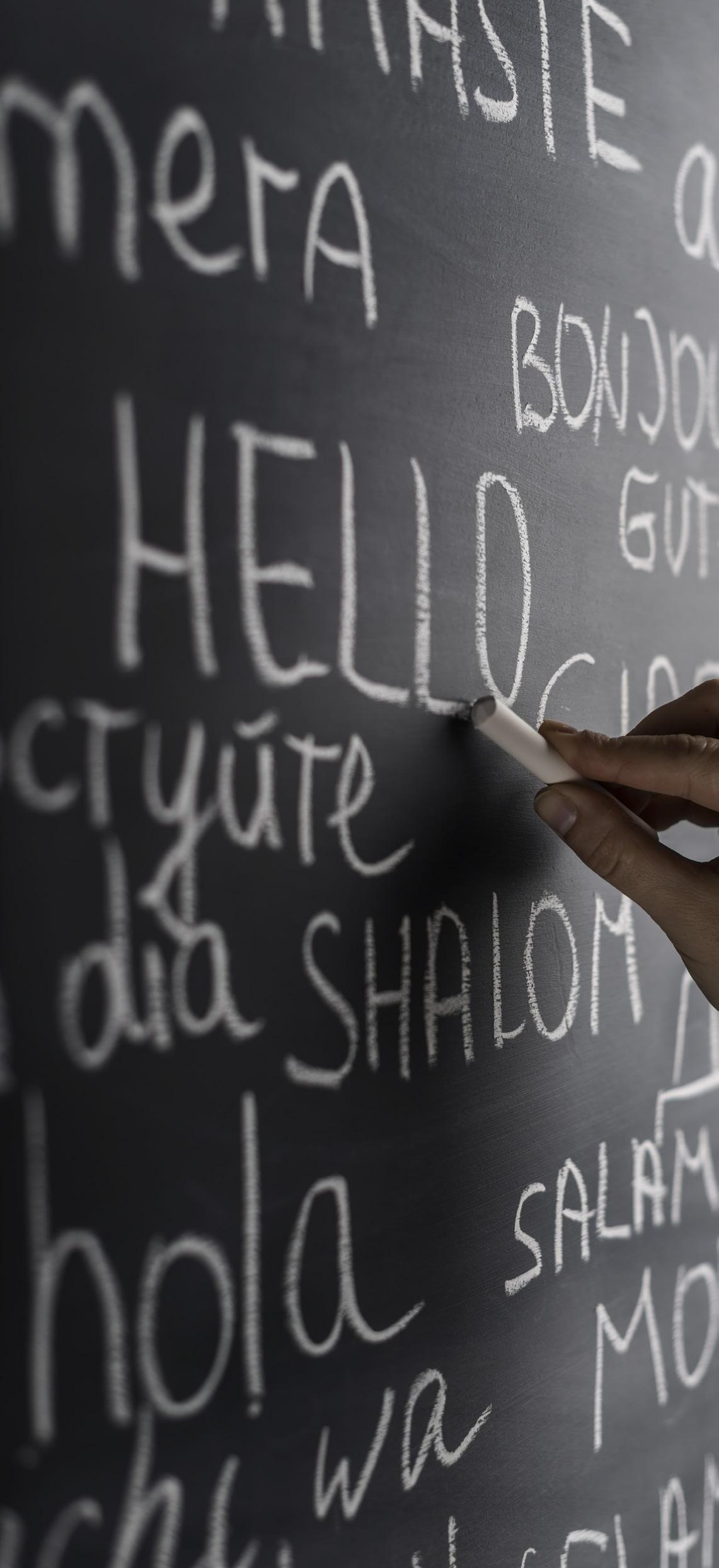

Subject Music
Department Lead Mrs L Bloore, DIPTCL LTCL PGCE Director of Music
Exam Board Edexcel
Course Number 1MU0
The academic study of Music develops pupils’ creativity and analytical skills. Whether working as a soloist or ensemble performer, musicians learn to communicate effectively whilst also developing self-confidence.
The Music GCSE course will offer pupils the opportunity to develop their music technology skills, and widen their understanding of musical conventions through the study of a wide range of styles and traditions.
Component 1: Performing
Internal assessment – 30%
Candidates will perform two different pieces, which are recorded and externally moderated:
One solo performance;
One ensemble performance (where the candidate’s part is not doubled by any other performer)
Component 2: Composing
Controlled internal assessment – 30%
Pupils submit two notated and recorded compositions. Candidates must undertake a minimum of five hours of their composing time in a classroom setting, under teacher supervision.
One piece to be composed in response to a brief set by the examination board; One ‘free’ composition, i.e. not related to a set brief.
Component 3: Appraising
External listening/written examination – 40%
Candidates will study a wide range of musical styles, genres and traditions. Questions will focus on theoretical analysis of the set works, and general aural and dictation skills. The listening examination will focus on the eight pieces of Music found in the list of set works:
• Instrumental Music 1700 – 1820
J.S. Bach: 3rd Movement from Brandenburg Concerto no. 5 in D major;
L. van Beethoven: 1st Movement from Piano Sonata no. 8 in C minor ‘Pathétique’.
• Vocal Music
H. Purcell: Music for a While
Queen: Killer Queen (from the album ‘Sheer Heart Attack’)
• Music for stage and screen
S. Schwartz: Defying Gravity (from the album of the cast recording of Wicked)
J. Williams: Main title/rebel blockade runner (from the soundtrack to Star Wars Episode IV: A New Hope)
• Fusions Afro Celt Sound System
Release (from the album ‘Volume 2:Release’)
Esperanza Spalding: Samba Em Preludio (from the album ‘Esperanza’)
It is strongly recommended that prospective Music pupils have attained at least Grade 5 in an instrument.
The continuation of instrumental or vocal music lessons is a requirement for this course, along with participation in co-curricular ensembles including Cantus.


Subject Physical Education
Department Lead
Exam Board
Course Number
Mr M Page, BSc MSc Head of Physical Education and Sports Science
GCSE Physical Education gives pupils the opportunity to gain a fully recognised qualification in a subject that intrinsically motivates them. It provides an excellent basis for A Level study in Physical Education and BTEC Sport (Level 3). These are both recognised for Higher Education entry alongside the more traditional subjects. .
GCSE Physical Education explores many theoretical topics relating to human biology, anatomy and physiology, analysis of movement, physical training, health and wellbeing, psychology in sport and socio-cultural influences. Pupils also have the opportunity to gain marks towards their GCSE Physical Education by demonstrating their physical skills in a range of sports and by analysing and evaluating their performance in one of these.
You will study both these theory and practical components within the course over the two years.
The theory course covers the following components:
The human body and movement in physical activity and sport (30%)
Pupils will learn about applied anatomy and physiology, movement analysis and investigate aspects of physical fitness and training and consider factors that affect performance such as the muscular and cardiovascular systems. They will gain an understanding of different fitness components, such as muscular endurance, and how to plan effective training programmes.
Socio-cultural influences and well-being in physical activity and sport (30%)
Here pupils consider the effect of cultural and social factors on sport such as commercialisation, sponsorship and the media, and the use of performance enhancing drugs on participation in sport. In addition, they will study sports psychology as well as investigate the role played by technology in the modern sporting world.
In both theory papers, across all the topics, pupils will also be asked to apply this knowledge to evaluate working out ‘data’ questions by analysing graphs, trends and themes.
Assessment
Examination (60%)
There are two x 1 hour 15 minute examinations at the end of the course with multiple-choice, short answer questions (e.g. 2, 3, 4 and 5 mark questions) and essay style questions (6 and 9 mark questions). Both of these papers are worth 30% of the GCSE PE each.
Three Practical Sports (30%)
Practical performance in three different physical activities in the role of player/performer (one in a team activity e.g. Hockey, one in an individual activity e.g. Singles Tennis and a third in either a team or in an individual activity). Each sporting choice is worth 10% of the overall GCSE PE grade.
The practical work is assessed internally throughout the course with practical examinations happening in February of Year 11. Pupils offering sports that the College doesn’t run e.g. Skiing can, with agreement, get video evidence for this following the set criteria. Situations where pupils play sport outside of school can also use video evidence for assessment. Pupils are then moderated by the examination board later in the Spring Term.
Analysis and evaluation of performance (10%)
The analysis and evaluation of performance is a written piece of coursework about the main sport. Pupils will be assessed on their analysis (15 marks) and evaluation (10 marks) of performance to bring about improvement in one activity. This is completed in Year 11.

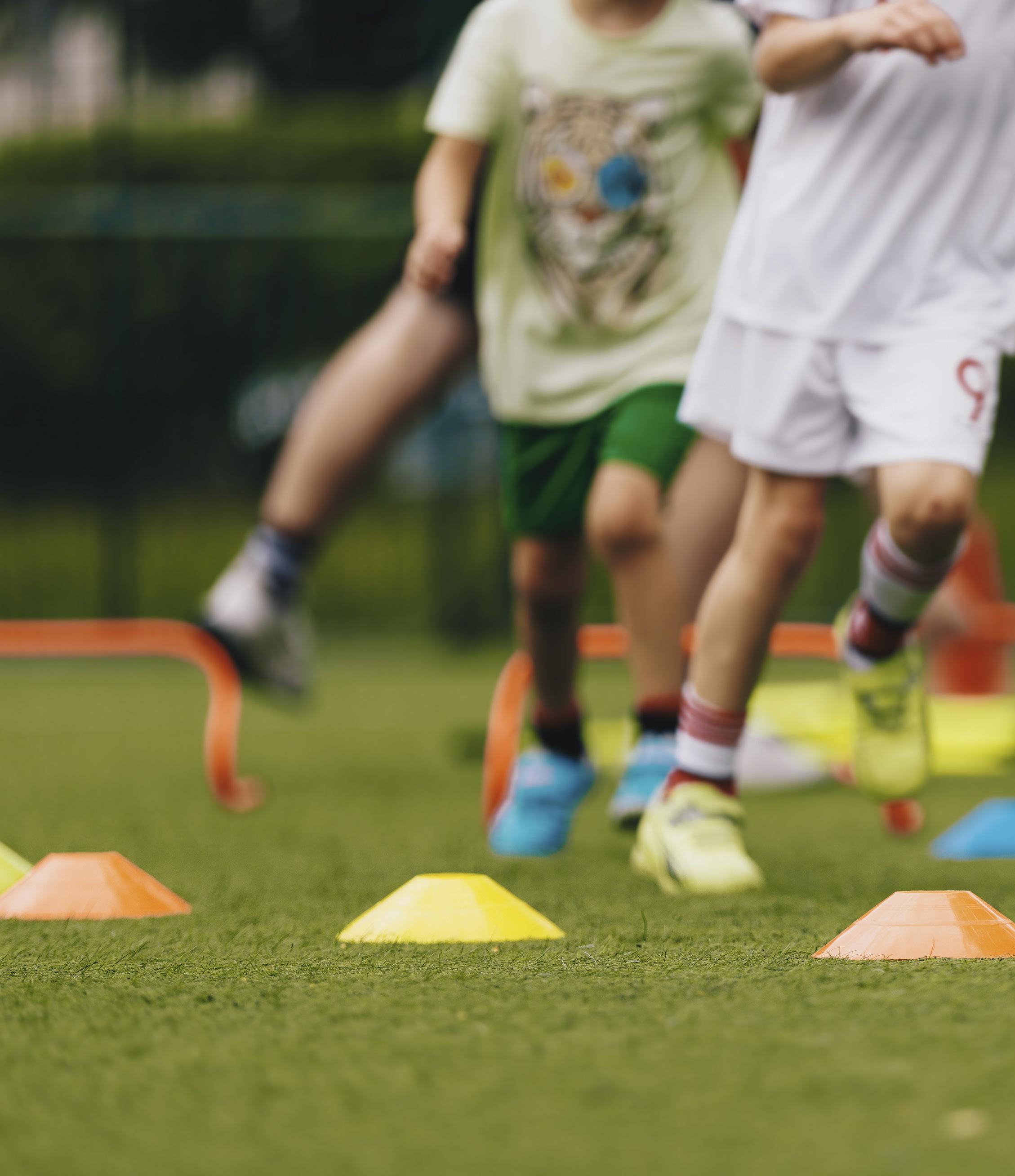
Subject Religious Studies
Department Lead Mr T Salisbury, BA (Hons) PGCE Head of Philosophy, Religious Studies and Politics
Exam Board AQA
Course Number 8062BA
It is clear that this is a rapidly changing world; socially, technologically and environmentally. The diverse ways in which people make sense of life’s challenges evolve too. Human frailty and diversity are therefore factors we need to comprehend. As most people’s personal beliefs determine their behaviour, beliefs are the key that unlocks understanding of both human frailty and diversity.
This GCSE enables pupils to develop their knowledge and understanding of non-religious beliefs, such as humanism, and of religious beliefs expressed in specific sources of wisdom and authority, including key religious texts. It also equips pupils to construct well-informed, balanced and structured written arguments, which display their depth and breadth of understanding. Pupils will engage with questions of belief, value, meaning, purpose and truth, and the influence of these on human life. They will be challenged to reflect on and develop their own values, beliefs and attitudes in the light of what they have learnt. Pupils will begin to understand the influence of religion on individuals, communities and societies, and the significant diversity of beliefs between and within religions.
The GCSE Religious Studies course has two components:
1. The study of two religions: beliefs, teachings and practices.
Christianity: Key beliefs and teachings
Pupils will investigate Christian beliefs about the nature and attributes of God. The creation story will be considered along with God’s subsequent activity in His world. Belief in the afterlife will be examined through themes such as resurrection, life after death, judgement and heaven and hell. Christ’s unique status as Son of God and claims about his incarnation will be explored in connection with belief in his saving power from sin and his crucifixion, resurrection and ascension.
Christianity: Practices and community
Pupils will investigate different forms of worship and their significance, including liturgical, informal and private worship. Also, the role of prayer and its significance, including the Lord’s Prayer, set prayers and informal prayer. They will consider the meaning of the sacraments and diversity of Christian belief about observing them. The purpose of Pilgrimage will be studied alongside the relevance to Christians of Christmas and Easter. Pupils will evaluate the social role of the church in local communities, the place of mission and evangelism, the worldwide church and its contribution to reconciliation, experience of and response to persecution, and the work of Christian charity organisations globally.
Buddhism: Key beliefs and teachings
Pupils will examine the concept of Dharma and significant beliefs such as the Three Marks of Existence. Regarding human personality they will consider the Theravadan tradition and its Five Aggregates of form, and in the Mahayana tradition, the possibility of attaining Buddhahood. The Buddha’s life and its significance will be studied, along with the Four Sights and Buddha’s subsequent ascetic life and Enlightenment. The Four Noble Truths will be evaluated focusing on beliefs about suffering, its causes, and remedies.
Buddhism: Practices and community
Pupils will consider the nature and purpose of Buddhist places of worship, including temples, shrines and monasteries, and their key features. The significance and role of ritualised devotion in the home and in the temple, including chanting, will be examined. The methods and benefits of meditation, including mindfulness of breathing and visualisation, will be studied too. The practice and significance of funeral ceremonies in Theravada communities in Japan and Tibet will be compared and distinct Buddhist ethical teachings about karma and rebirth, compassion and loving kindness, will be examined. Pupils will consider the five moral precepts governing contemporary Buddhist living and the six perfections in the Mahayanan tradition.
Assessment: a written exam of 1 hour 45 minutes • 50% of GCSE
2. Thematic studies: religious, philosophical and ethical issues.
Religion and life
This theme will investigate religious teachings about the origins and value of the universe, acknowledging different interpretations, and their compatibility with scientific views such as the Big Bang theory. Pupils will consider religious teachings about the value of the world and human

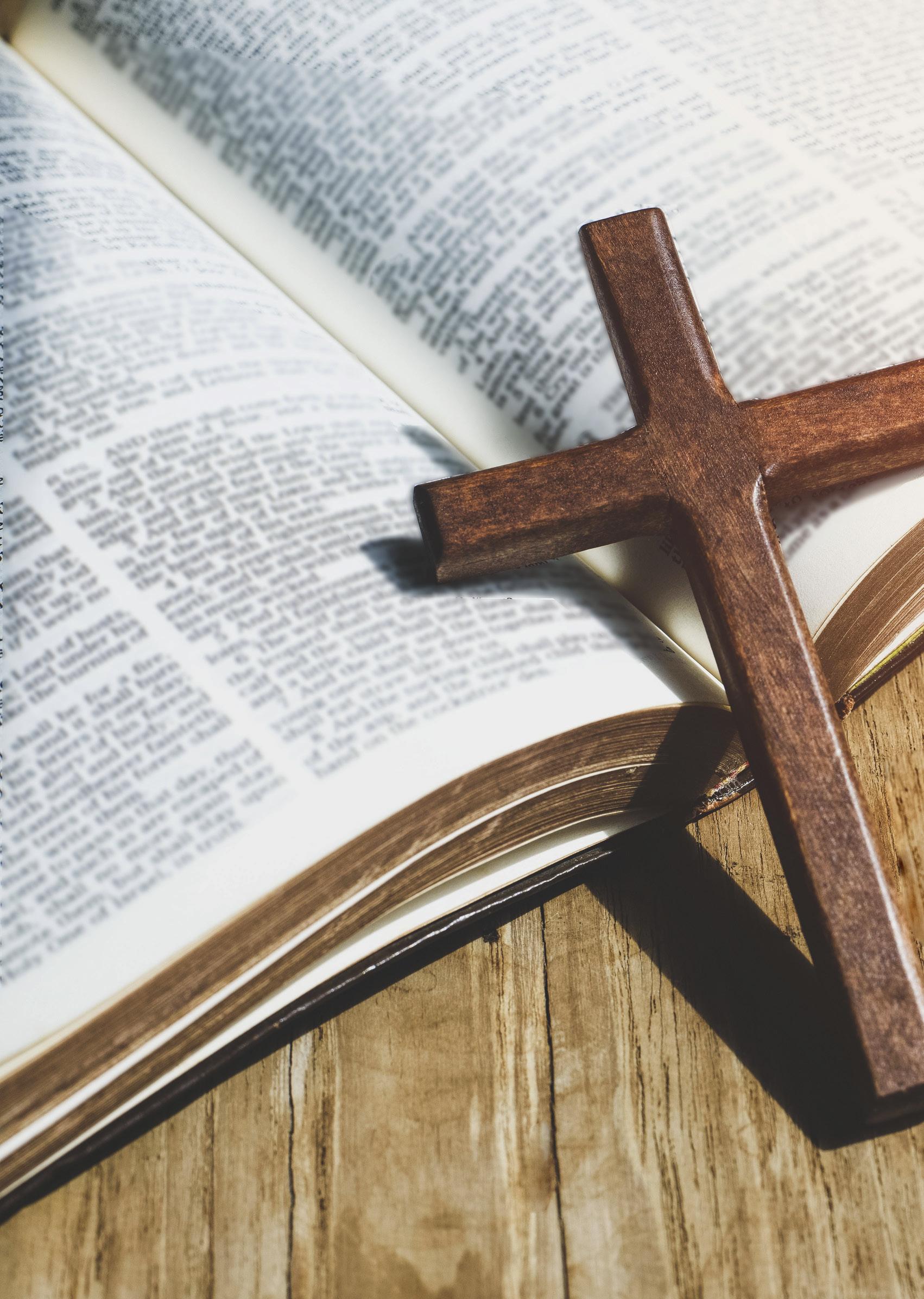
responsibility towards it, particularly regarding ‘stewardship’ and ‘dominion’, and the use and abuse of the environment and animals. The origins and value of human life will be evaluated including the relationship between scientific views, such as evolution, and religious views. The concepts of sanctity of life and the quality of life will be scrutinised alongside religious beliefs and attitudes about abortion and euthanasia and about death and an afterlife.
The existence of God and revelation
Pupils will study philosophical arguments for and against the existence of God, including both the Design argument and the Cosmological argument. They will evaluate the argument for Miracles, and study one example. Attention will be drawn towards the problem of Evil and Suffering as an argument against the existence of God, in addition to scientific arguments against the existence of God. Pupils will consider the nature of God, and Special Revelation, or enlightenment, as a source of knowledge about the divine. Ideas about, and derived from, General Revelation through nature, will also be studied.
Religion, peace and conflict
Pupils will study religious teachings, beliefs and attitudes about violence, terrorism and war, and corresponding issues regarding peace, justice, forgiveness and reconciliation. Pupils will also examine Just War Theory, the notion of Holy War and also Pacifism. Religion and belief as a contemporary cause of war and violence is also relevant here, as are religious attitudes to nuclear weapons and weapons of mass destruction. Pupils will also examine the role of religion in peace-making and the work of individuals motivated by religion to aid the victims of war.
Religion, human rights and social justice
This theme investigates religious teachings, beliefs and attitudes about social justice and human rights and responsibilities. The issue of equality in freedom of religion and belief is pertinent, as are prejudice and discrimination in religious expression and treatment of gender, sexuality, disability and race. Pupils will also explore religious responses to wealth and its uses, and the responsibility of the wealthy to tackle poverty and its causes. They will consider the exploitation of the poor alongside the responsibilities of those living in poverty toward themselves.
Assessment: a written exam of 1 hour 45 minutes • 50% of GCSE


Subject Science
Department Lead Mr S Lebbon, BSc (Hons) MCCT MRSB PGCE Head of Science
Exam Board AQA
Course Number 8461 (Biology), 8462 (Chemistry), 8463 (Physics), 8464 (Combined)
The College runs two different Science courses in Years 10 and 11.
The course studied depends on which set a pupil is in, and this is decided by pupils’ performance throughout Year 9. This will have been discussed with parents at the Year 9 Parents’ Meeting. Pupils joining the school in Year 10 will all be treated on an individual basis, after assessing their potential early on. It is possible to move between sets during Year 10 and 11, and any set changes will be discussed with relevant staff, pupils and parents.
The most able pupils, in the top set, will sit three separate GCSE exams in Biology, Chemistry and Physics. Pupils who intend to study one or more science A Levels are likely to be in these higher ability sets, though it is by no means essential to have studied all three sciences in such detail to go on to A Level sciences.
Pupils in other sets will study the Combined Science GCSE and will gain two GCSE grades at the end of Year 11. The content of this course is at the same academic level as for the three separate sciences, and contains equal amounts of Biology, Chemistry and Physics but omits certain topics.
Both courses have the same allocation of three lessons per subject per week, but the pace of covering material is much more rapid in the higher sets. Biology, Chemistry and Physics are taught separately by subject specialists. for both courses.
All pupils will study:
How Science Works:
Making observations and taking measurements; designing an investigation; presenting and interpreting data; scientific literacy and the presentation and interpretation of data.
Biology:
Cell Biology; Organisation; Infection and Response; Bioenergetics; Homeostasis and Response; Inheritance, Variation and Evolution; Ecology.
Chemistry:
Making use of the Earth’s resources; the structure of substances; controlling useful reactions; energy.
Physics:
Making use of electricity, energy and radioactivity; light and other waves; forces and motion.
Assessment
These GCSEs are completely linear courses and are examined at the end of Year 11. There are two written examinations per subject, with no coursework or controlled assessment. For the separate sciences, each examination is 1 hour 45 mins in duration; for the Combined Science (Double Award),they are 1 hour 15 minutes. The same range of GCSE grades, 9 - 1, are available for both courses.
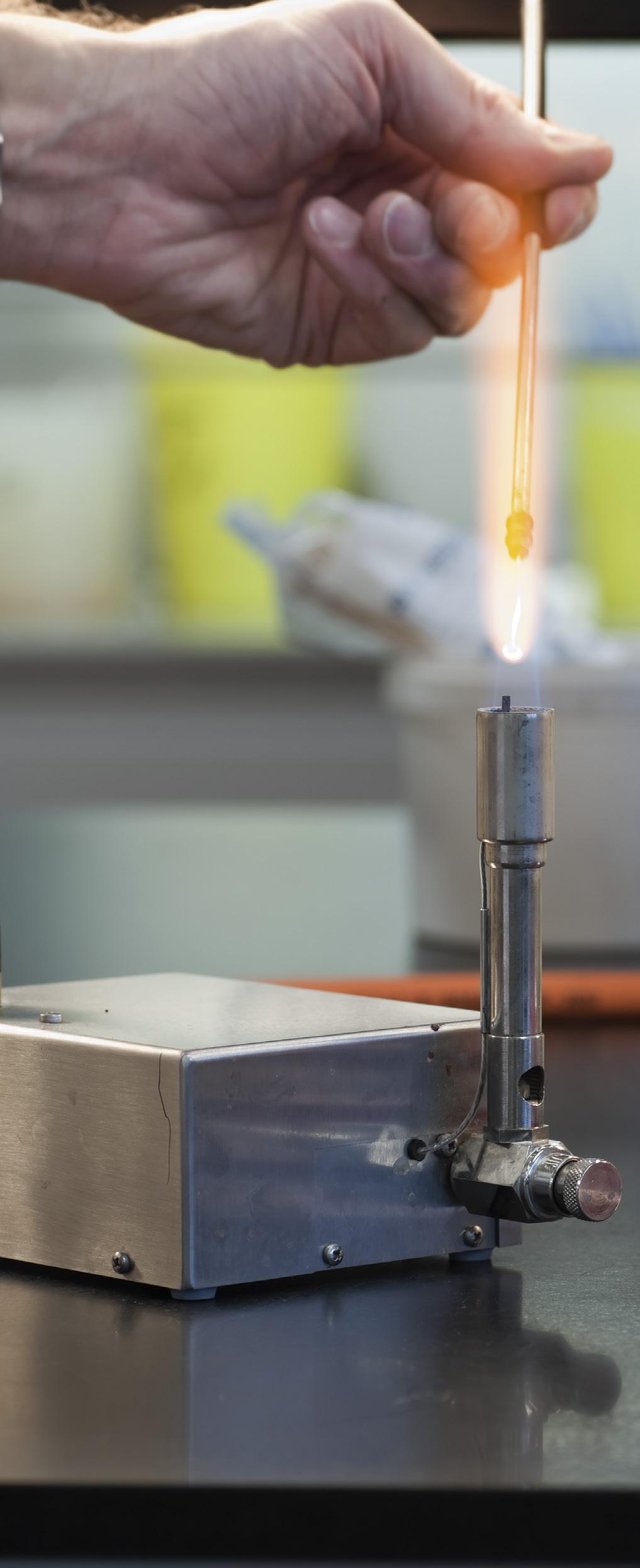

AT FRAMLINGHAM COLLEGE WE CELEBRATE EVERY INDIVIDUAL.
THERE IS NO TYPICAL FRAMLINGHAMIAN, NO SINGULAR PATH THAT WE TAKE.
We are academics, actors, musicians, expeditioners, sports people, innovators, scientists, ruminators, decision makers, story tellers, teammates, artists, fun lovers, nurturers and thought provokers. Often, we are many things within one.
BUT WE ARE ALL INDIVIDUAL, EACH WITH OUR OWN STORY.
Let’s see who you are...
FRAMLINGHAM COLLEGE SENIOR SCHOOL
Framlingham, Suffolk. IP13 9EY
+44 (0) 1728 723789
reception@framlinghamcollege.co.uk
framlinghamcollege.co.uk
